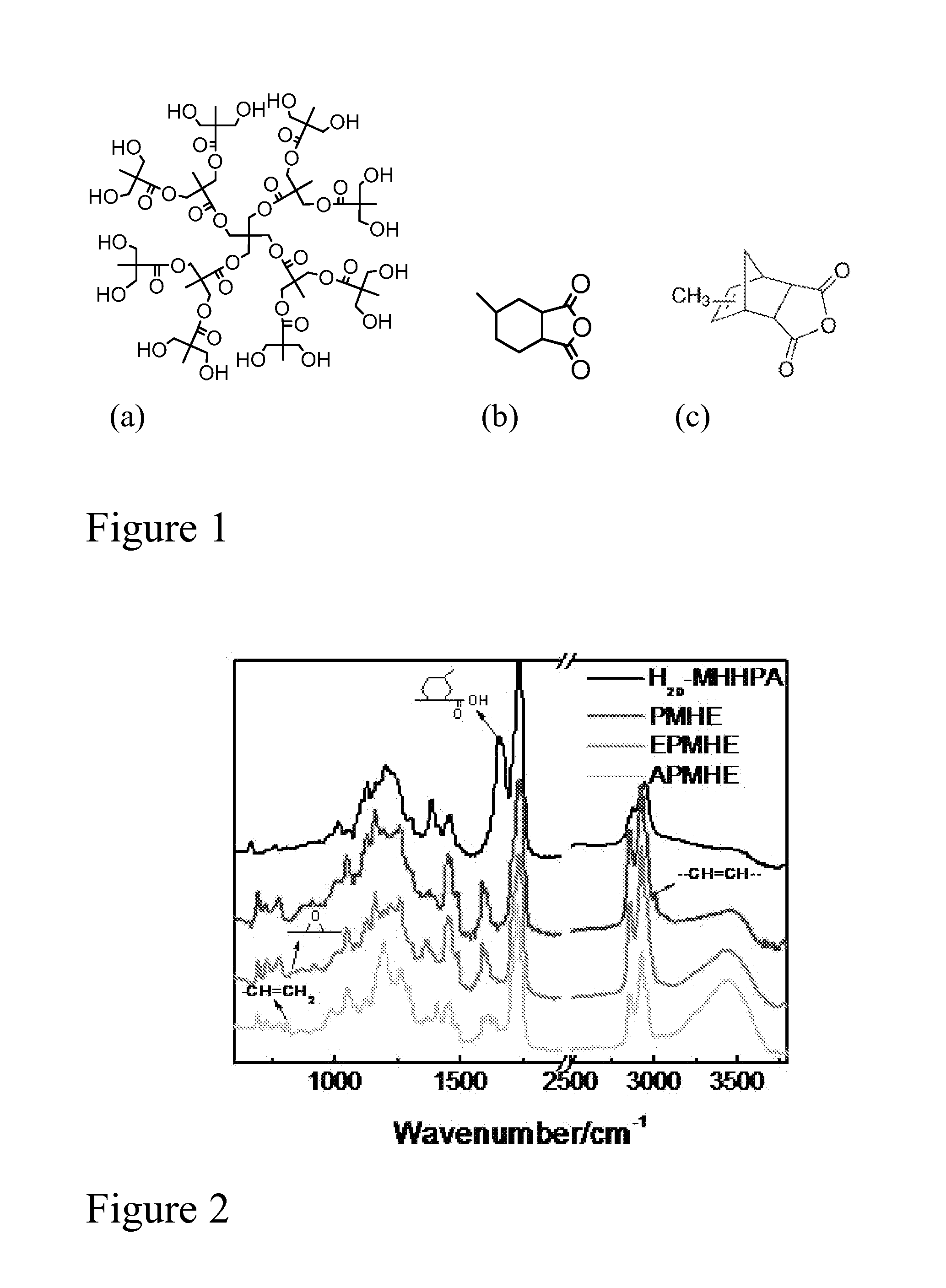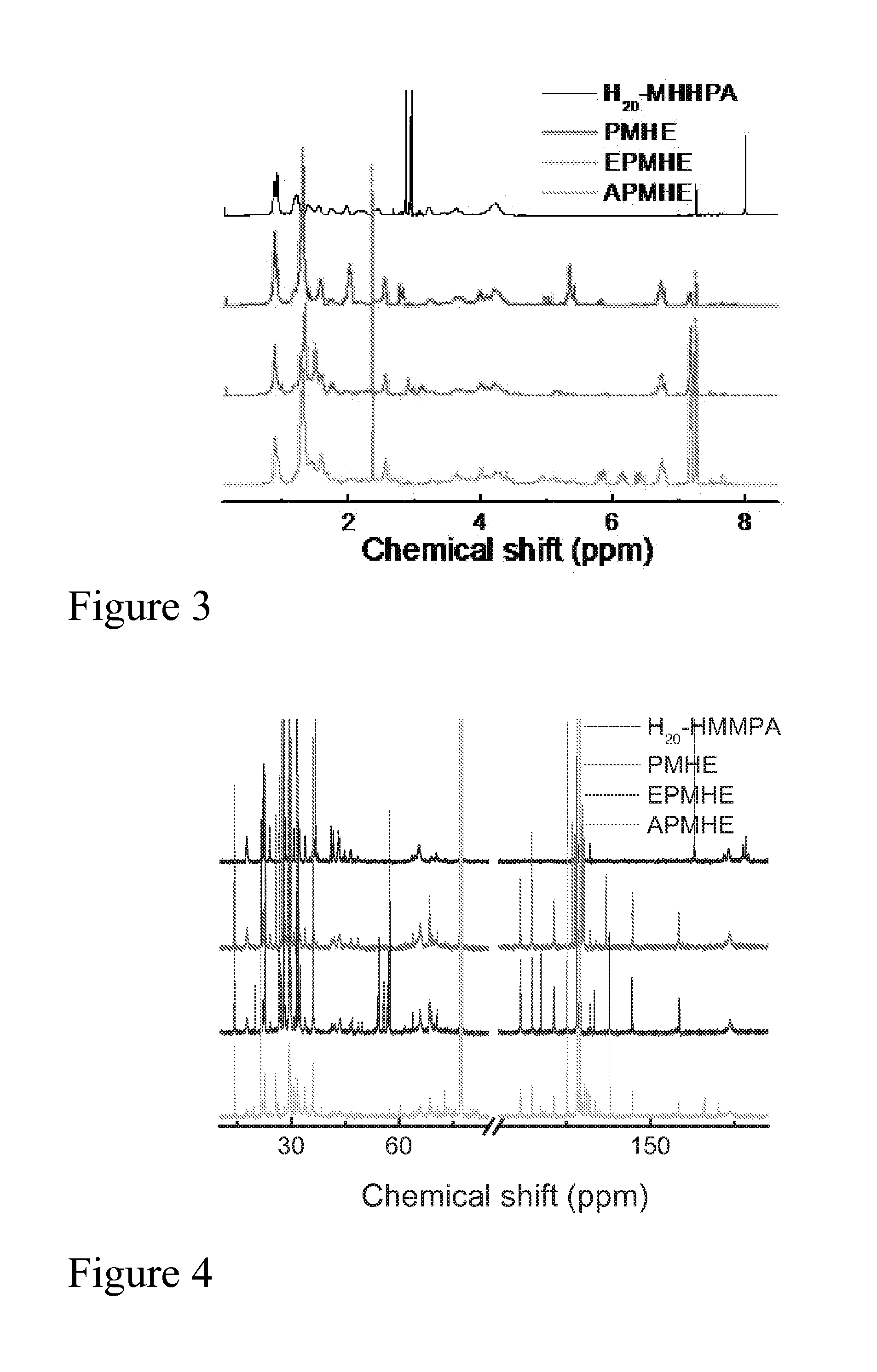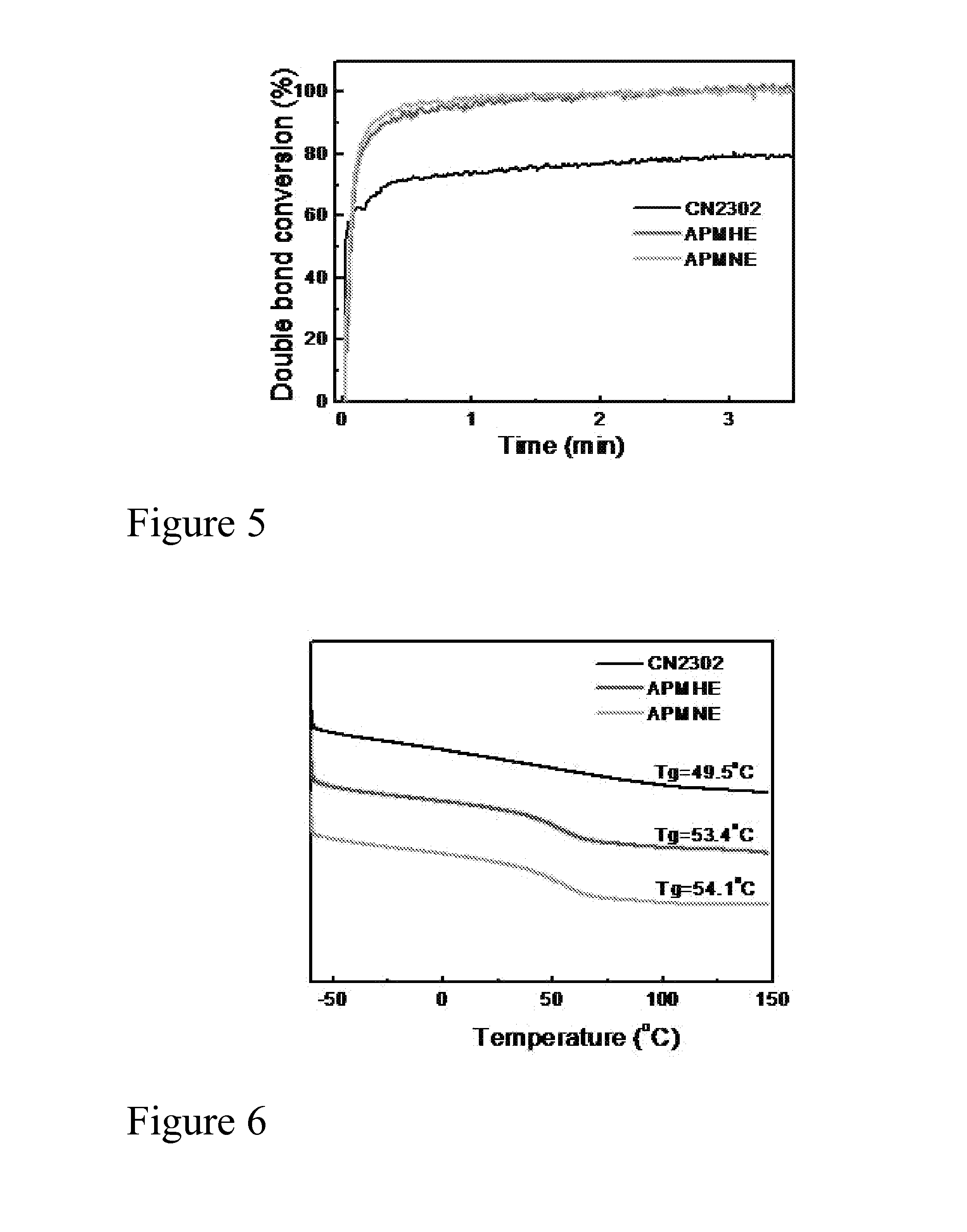Bio-based branched and hyperbranched polymers and oligomers
a bio-based, hyper-branched technology, applied in the direction of organic chemistry, etc., can solve the problems of low biorenewable content, achieve broad and rapid market acceptance, reduce carbon footprint, and reduce cost
- Summary
- Abstract
- Description
- Claims
- Application Information
AI Technical Summary
Benefits of technology
Problems solved by technology
Method used
Image
Examples
examples
[0080]The present invention is illustrated by the following examples. It is to be understood that the particular examples, materials, amounts, and procedures are to be interpreted broadly in accordance with the scope and spirit of the invention as set forth herein.
example i
Plant Oil Based, UV Curable Hyperbranched Polymer with “Hard Core, Flexible Shell” Structure
[0081]It is well known that the macroscopic characteristic of a material is determined to a large extent by its molecular structures. Hyperbranched polymers have attracted considerable attention due to their remarkable properties. In our previous work (Chen et al., 2010, J. Coat. Technol. Res., 7: 603-613; Chen et al., 2011 Prog. Organic Coatings, 71(1):98-109; Wu et al., 2011, Polymer International, 60(4):571-577) we showed that the introduction of petrochemical-based hyperbranched acrylates (HBA) into polymers derived from biorenewable materials generated UV-curable coatings that exhibited enhanced performance. In order to further increase the biorenewable content of these coating materials, we have developed biorenewable hyperbranched acrylates (BHBAs) with performance that is comparable to or even better that that of petrochemical based hyperbranched acrylates.
[0082]Accordingly, a new, gr...
example ii
High Biocontent Natural Plant Oil Based Branched Oligomers for Thermoset Materials
Summary
[0115]A new, green approach to improve the performance and biorenewable content of natural plant oil based UV-curable materials is presented. Novel soybean oil (SBO) based UV-curable branched oligomer SBO-g-CNSL (CSO) was synthesized by chemically introducing the cashew nutshell liquid (CNSL) onto the epoxidized soybean oil (ESBO) backbone, followed by epoxidization and acrylation to obtained UV or thermally curable oligomers. The epoxidized SBO-g-CNSL (ECSO) was used to produce cationic UV-curable coatings with a cycloaliphatic epoxy. Dramatic improvement in compatibility with the cationic photoinitiator and the cycloaliphatic epoxy were found for ECSO as compared to ESBO. The coatings based on ECSO exhibited much enhanced properties. Acrylated epoxidized SBO-g-CNSL (ACSO) with high biorenewable content was also prepared. The properties of UV cured films were studied by evaluating their mechani...
PUM
| Property | Measurement | Unit |
|---|---|---|
| temperature | aaaaa | aaaaa |
| tip radius | aaaaa | aaaaa |
| frequency | aaaaa | aaaaa |
Abstract
Description
Claims
Application Information
 Login to View More
Login to View More - R&D
- Intellectual Property
- Life Sciences
- Materials
- Tech Scout
- Unparalleled Data Quality
- Higher Quality Content
- 60% Fewer Hallucinations
Browse by: Latest US Patents, China's latest patents, Technical Efficacy Thesaurus, Application Domain, Technology Topic, Popular Technical Reports.
© 2025 PatSnap. All rights reserved.Legal|Privacy policy|Modern Slavery Act Transparency Statement|Sitemap|About US| Contact US: help@patsnap.com



